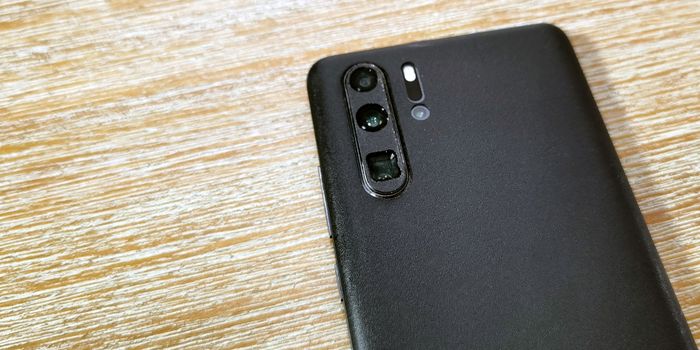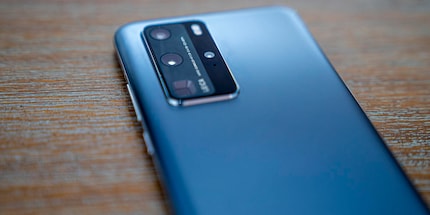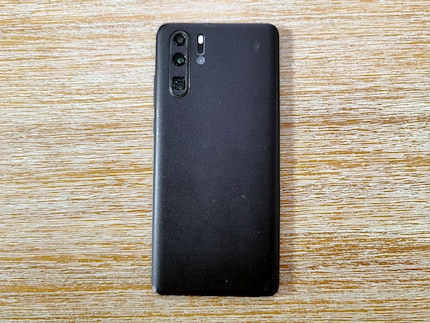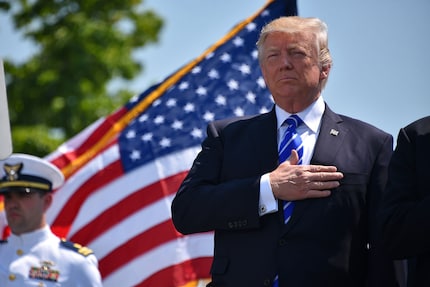
Background information
Huawei without Google Services: A look at the Mate 30 and the future of Android
by Dominik Bärlocher


Huawei is launching a new phone equipped with Google services. The Chinese group is not normally allowed to do this, but it has found a loophole. The trick: a new version of the P30 Pro. Finally, a short analysis of the psychology of lying.
Huawei, you're a real scoundrel. And also a bit awesome.
A new smartphone from Huawei featuring Google services has just hit the market. Huawei is giving us a lesson in recycling. Not for beauty's sake, but out of necessity, as the Chinese firm isn't allowed to install Google services on its new phones.
The new Huawei smartphone features Google services.
Huawei has more than one trick up its sleeve and has decided to give an old model a lick of paint. The Huawei P30 Pro New Edition is in fact now available in a new colour. A colour that fans of its successor, the P40 Pro, know all too well. "Silver Frost" is the P40 Pro's flagship colour and is a kind of subtle gradient between silver, blue, grey and white.

Despite being priced below most of the flagship models currently dominating the market, the Huawei P30 Pro has nothing to be ashamed of in terms of its market position. Of course, it's not a front-runner, but it still holds a good place at the top of the basket, just behind the trendy top-of-the-range models. This is rather surprising, given that this year's manufacturers have boasted some of the best innovations, particularly in terms of cameras. The P40 Pro does, of course, take better photos than the P30 Pro. The DxOmark, test, in which the P30 Pro shows its shortcomings, particularly for video, confirms this. But the photos are still very good.

Always relevant in today's market, the P30 Pro proves to us that the annual renewal cycle is surely too fast. Because if you own a P30 Pro, there's really no reason to upgrade to the P40 Pro. Sure, the photos and videos are of better quality, but we're getting closer and closer to the point where only insiders are able to notice and take advantage of the improvements.
With that in mind, Huawei can comfortably launch the P30 Pro New Edition by the end of the year. This one may even still be as relevant in 2021. After that, its technology risks being overtaken. For the company, on the other hand, this shouldn't be too serious, as its own version of the Play Store, the Huawei App Gallery, is developing rapidly. The underlying Huawei services have proven to be functional. But the apps in the App Gallery are still not what Swiss consumers are used to.
It is certainly possible to fiddle with installing Google services on the latest Huwei phones, but the solution is not ideal. It's within everyone's reach to do it, but the whole thing can prove unstable.
It's a good idea.
Finally, November 2020 will see the election of a new US President or the confirmation of Donald Trump in office. In the former case, a cancellation of trade sanctions against Huawei is conceivable and could well happen quickly.
As of May 2019, Huawei is no longer allowed to install Google services on its new phones. This was a decision by Donald Trump, the democratically elected President of the United States. Huawei is strongly suspected of espionage, it has been claimed. As a result, the Chinese group has been blacklisted and US companies are no longer allowed to do business with Huawei. This includes Alphabet Inc, the parent company of Google, which produces Google services. The US Department of Commerce announced at the start of the sanctions that exceptions would be made to allow individual US companies to work with Huawei. It is not known whether any of these permissions have already been granted.

On the media side, there was an interesting effect. For some attributed a certain wisdom to Joseph Goebbels, German Reich Minister and representative of the Ministry of People's Education and Propaganda.
You only need to repeat a lie often enough for it to become credible.
Where, at first, media consumers still thought of "pure nonsense", this effect then crept into people's minds. From "pure nonsense", we moved on to "but it's possible, isn't it?", without of course neglecting the "they're all spies". This effect, dubbed "The Illusion of Truth", was studied in 2015 by scientist Liza K. Fazio, assistant professor of psychology and human development. Her conclusion: the illusion of truth can arise even in minds that normally "know better."
The burden of proof is on the US government, and on the basis of the current facts alone, the suspicion of espionage is unfounded. But there is one factor that public opinion is unaware of: the government, whether ours or the US government, does not have a full duty of disclosure to us. It is therefore quite possible that the United States has evidence but cannot publish it. This may be the case, for example, if the evidence is the subject of an ongoing investigation and its publication could compromise that investigation.


Journalist. Author. Hacker. A storyteller searching for boundaries, secrets and taboos – putting the world to paper. Not because I can but because I can’t not.